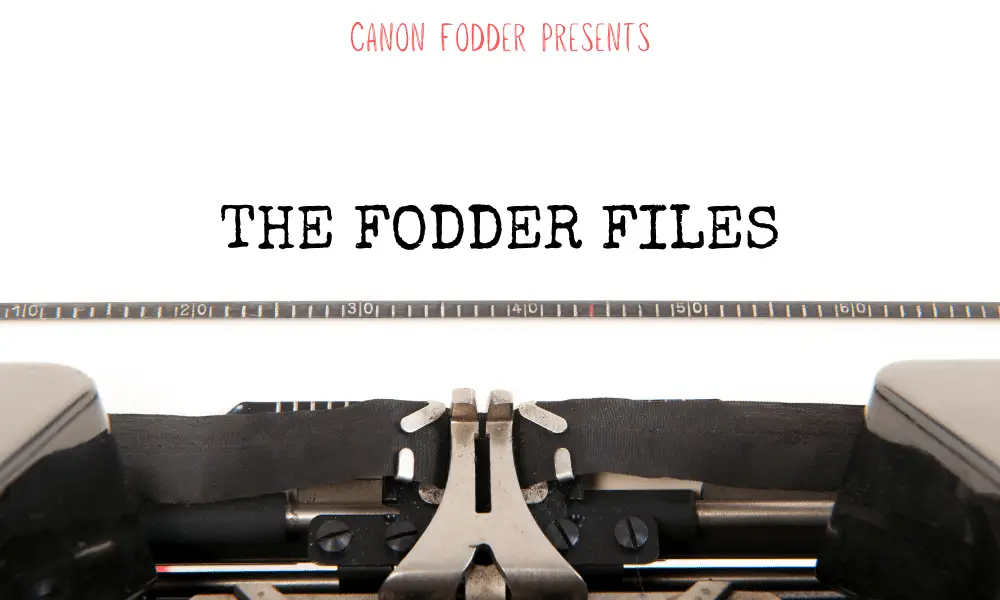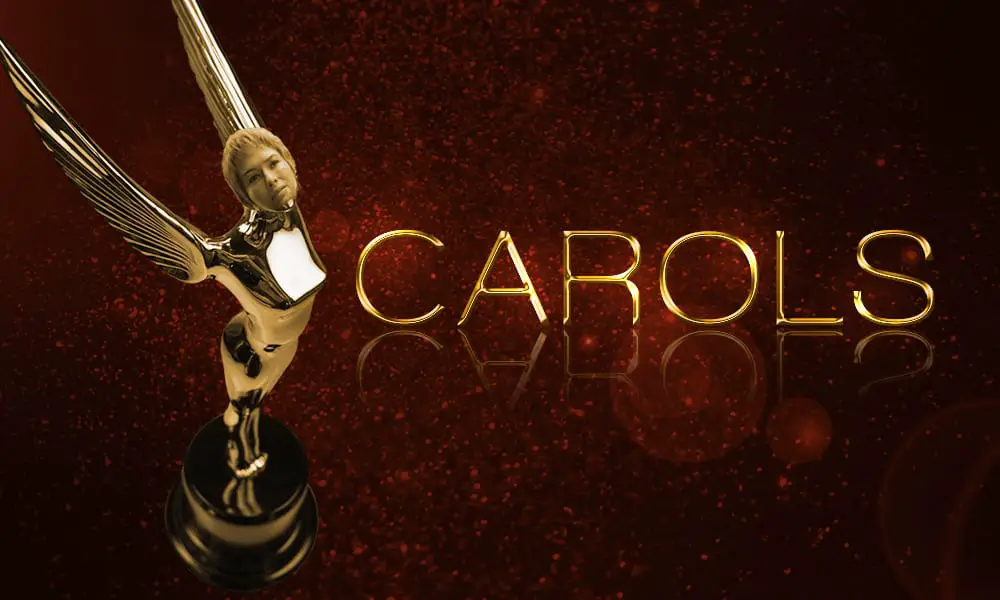I like sex as much as the next non-ace spectrum gal. I enjoy reading about it in my fiction, too, especially if it’s between two characters that I really, really want to bone each other. But I have a problem. See, I’m also very picky about my smut. Whether it’s word choice, tone, specificity (or lack thereof), there are a lot of things that can take me out of it when I’m reading scenes of an erotic nature. I don’t generally read a lot of erotica/erotic romance precisely for this reason; unless it’s recced to me from a reliable source who knows what I enjoy, I can’t muster up the energy to go sorting through thousands of options to find something I want. (Incidentally, it’s also why I don’t read a lot of fanfic.)
In fact, I’m so unfamiliar with the genre that I apparently don’t even know when I’m reading it. The other day, I picked up a book someone had recommended, and it wasn’t until about a quarter of the way through that I paused to ask myself, “Wait, is this erotica?” (The answer is yes, it was.) So, if, like me, you look for very specific things in sex scenes—to the point where you can’t always tell if you’re reading erotica because it doesn’t appeal to your specific sensibilities—I’ve created a handy (and a bit cheeky) guide.
As you can imagine, this is going to be NSFW.
If Your Protagonist Thinks about Sex a Lot
You might be reading erotica. To be fair, like much in life and art that has to do with sex, there’s a spectrum. Some books contain little to no reference to sex in a character’s internal monologue. Others do. Because sex is a normal part of the human experience for those interested in it, a protagonist thinking about sex shouldn’t surprise us, and a character thinking about sex doesn’t make a book erotica. Katniss thinks about sex in the Hunger Games series and that is a far cry from erotica (kind of the opposite, actually, if you hold to the Katniss is ace headcanon).
However, if the protagonist’s internal monologue contains frequent and consistent references to sex, that’s another story (heh). Put another way, if removing thoughts of sex would depopulate a good chunk of the protagonist’s thought life or weaken their characterization, it’s erotica. Similarly…
If Sex and Sexual Fantasies are a Primary Feature of How the Protagonist Relates to Another Character
You might be reading erotica. This can be the hardest one to pin down sometimes because characters relate to each other in many ways, one of which may be sexually charged. The relationship between Jaime and Cersei of A Song of Ice and Fire includes erotic elements. Jaime thinks about having sex with—or other men having sex with—Cersei quite a lot, but their plotline isn’t fundamentally or even primarily, erotic. Even having explicit sex scenes between two characters doesn’t automatically make the book erotica. These days, explicit sex scenes and erotic undertones exist even in other genres (which is where my next criteria comes in, so I’ll have to delay fulfilling that desire for now).
At the same time, if sexual acts or fantasies dominate how the protagonist relates to one of the secondary characters, there’s a good bet the book is erotica. Sex drives their interactions. When the protagonist thinks about the other character, sex almost always comes up. Thinking about that person makes the protagonist aroused, and such reactions happen repeatedly and consistently and drives their actions. Basically, if every time they think about that person, they think of having sex with them, it’s probably erotica. Though again, a lot depends on plot and prominence, but for that, you’ll have to wait just a bit longer.

I should also mention erotic romance here, a hybrid genre of erotica and romance. As the name implies, erotic romance enfolds explicit sex scenes/fantasies into a larger romantic arc with a happy ending. I mention this separately because the larger romance and happy ending come from the romance genre and not all erotica has these elements. Erotic romance is still erotica, though, just a specific kind. For erotic romance, think of erotica as the foreplay to a story that ends in a satisfying romantic climax.
If There are at Least Four Explicit Sex Scenes
You might be reading erotica. As I said, just having a sex scene or two does not erotica make. Not even if those scenes are explicit. More and more novels written for adult audiences feature explicit sex, even in genres like fantasy or scifi. But sometimes, quantity does matter. Because the more something features in a book, the more likely it is to be central to the storytelling. I picked four because in your average novel of 250 pages, four explicit sex scenes would take up a lot of space (as much as 10% or more of the page time). However, I could go as low as three if one occurs within the first quarter of the book.
I admit, these are arbitrary numbers. A lot of it has to do with placement and vibe. Do the scenes feel like they’re the ‘point’ of the book? Do they seem intended primarily to arouse the reader? If you took them out would it change anything about characterization or plot? How close to the beginning of the book they begin to appear?
But also, yeah, quantity matters. Four times in a year is one thing, but four times in a night means something different. (Also, good for you. Sounds like you’re enjoying yourself.)
If the Protagonists Masturbates Within the First Ten Pages
You might be reading erotica. I feel like this one goes without saying, especially if paired with several explicit sex scenes. If your protagonist is getting off by their onesies that soon into the book, you can bet there’s more to follow. (Full confession, I include this because it happened in the book I mentioned at the outset and…yeah, this should have been my first clue.)
If Uncomfortable or Awkward Metaphors for Sexual Positions or Pleasure are Used
You might be reading erotica. This is one of those things about erotica that people mock a lot, and it’s worth noting that this is changing. The Ten Things I Hate About You “quivering member” style of writing erotica isn’t as prevalent as it used to be. Still, I run into it. I recently reviewed a book that used the metaphor of someone’s balls turning inside out with pleasure. I may not have testicles, but that just sounds painful. To be fair, this wasn’t labeled as erotica, it was just a weirdly written explicit sex scene. But it’s not alone. I’ve seen descriptions of moving a male identified character’s cock ‘like a joystick’ (why?!) or a female identified characters’ breasts ‘heaving like ocean waves’ (NO. OW. THAT’S NOT ENJOYABLE).
This is one of those criteria that’s best coupled with other elements, because as I just noted, uncomfortable metaphors for sexual pleasure or body positions occur outside of erotica. Especially, though not exclusively, with young, inexperienced writers or older writers used to the older style of writing erotica. I’ve also found it more likely to occur when the author is writing about a character who is not of their own gender (women writing m/m, men writing a female character, etc).

If You See the Word ‘Sex’ as a Euphemism for Vagina
You might be reading erotica. Unfortunately for my reading pleasure, lots of euphemisms for body parts that I find unappealing make their way into erotica. Nub in particular makes me drier than the Sahara, but other offenders include: pussy, core, slit, rod, sword (and sheath), nether lips, bud (for nipples or clitoris), budding (for breasts, looking at you George R. R. Martin, breasts do not bud), button. I’m sure there are more but these are the ones I can think of off the top of my head.
Now, as with the previous criteria this is changing, especially as society becomes more comfortable with describing cis female pleasure. Most of the previous euphemisms referred to cis female body parts, and there’s a reason for that. (Hint: the word begins with s- and ends in -exism.) Historically, talking about vaginas and their pleasure experiences was taboo. Hence the multiplicity of—and at least to me unpleasant sounding—euphemisms.
Thankfully, it’s getting better. But, like a bad lover, such terms still turn up when we least want them to, even in works by female authors. Even works by queer female authors writing f/f erotica. And not just inexperienced authors or ones more used to writing in a more circumlocutory style. I see it everywhere, even in non-erotica, so as with some of the other criteria, this shouldn’t be used on its own.
To be perfectly honest, I’m probably not the best person to ask about word choice in erotica. It’s the single biggest offender for me going from totally into it to utterly unmoved. I’m very picky about word choice, and your mileage will likely vary. To each their own kink and their words to talk about them. (Just please, please, I’m begging you: never use the word nub again. I don’t have a nub, thank you very much.
If You Can’t Keep Track of Body Parts
You might be reading erotica. Yes, yes, books that aren’t erotica have this problem too. However, unlike the previous two, I do think losing track of body parts and what people are doing occurs more frequently in erotic literature. Why? Because of the explicit nature of the content. As readers tastes moves away from euphemisms and vague phrasing, more clarity and specificity means more opportunities to lose track of what people are doing. And unlike real life, you can’t see anything. And if you’re anything like me, I get anxious when I can’t tell what people’s bodies are doing.

Why is her arm there, wasn’t she just touching her leg? Wait, what is her hair doing again? And why does it sound like there are five legs when there should only be four? Arms don’t move like that do they? And wouldn’t that configuration be awkward since he’s less muscular?
If you, too, get confused and overwhelmed by the specificity of body placement and keeping track of what’s moving where, you are not alone! I don’t have any solutions other than watching erotica or only reading recs from friends, but at least you don’t have to suffer by yourself. And now, with my guide, you can be prepared for what’s coming.




